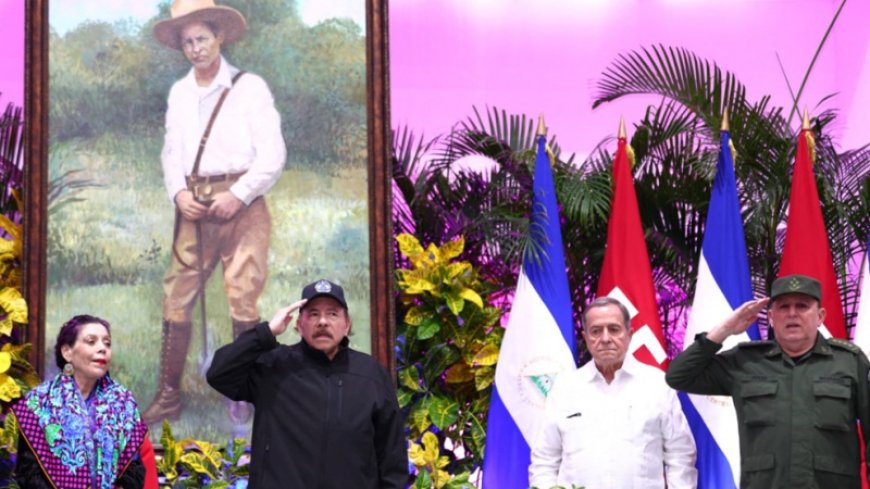Nicaragua, the US continues to fail to comply with the International Court of Justice ruling
Nicaragua, the US continues to fail to comply with the International Court of Justice ruling

On June 27, 1986, the International Court of Justice sentenced the United States to compensate Nicaragua for fomenting civil war in the Latin American country. 37 years have passed since the one without it and Washington still does not pay 13 billion dollars to Managua. Nicaragua's President Daniel Ortega has just filed a complaint with the UN against the United States for never having remedied the damage it had caused with its support for death squads in the Latin American country.
On June 26, 37 years have passed since the sentence of the International Court of Justice in The Hague, which condemned the United States for the terrorist war against Nicaragua and ordered the Central American country to be compensated with 13 billion dollars. Washington has never accepted what was sentenced by the highest international legal authority and, 37 years later, still does not.
Behind the juridical oppositions, there is a political truth: accepting the sentence would imply the recognition of the United States as a nation among others, that is, forced to respect International Law and the institutions called to protect it. Irreconcilable with the status of "exception", which they have assigned themselves in the Constitution and then in the criminal acts that have characterized their 249 years of existence, made up of 232 years of war and about 30 million victims sacrificed for the affirmation of a crazy, Darwinian and exclusive model.
To the reader today it might seem strange that an International Court of Justice condemns the United States on complaint by Nicaragua. The biblical narrative of David against Goliath helps symbolic identification, but it is, in fact, only symbolic. In the concrete case the Court had no choice but to condemn the guilty to compensate the innocent, it was impossible to sentence otherwise. The work of the United States in Nicaragua was condemned in a point of law, the criminal terror of a giant against a small and innocent country.
Legal history, as always happens, is the daughter of political history, since there is no doctrine that ignores the context in which it applies and the protagonists and their reasons. Wanting to divide the story of that sentence in two, we can start with the juridical one and then move on to the political one.The legal history of aggression and resistance is written in a few dates: on April 9, 1984, when Nicaragua forwarded its complaint; on 26 June 1986, when the Court issued its definitive sentence, articulated in 833 pages.A sentence of historic significance, because it pronounced clearly on the use of force in international relations and on the extensive interpretations of article 51 of the UN Charter, which broadened the scope of the concept of legitimate defense to convenience.
The Court, for the first time in 40 years of existence, entered into the merits of the legitimacy of the use of force by a superpower in its area of influence and reiterated, in the specific case, that the US thesis, which affirmed the of the intervention against Nicaragua as aide of the guerrilla in El Salvador, did not hold up. Because even admitted and not granted that there had been such activity, that it was the responsibility of the government of Nicaragua and not of individual citizens of any country, the US aggression was of such a dimension that it cannot be justified as a reaction based on the juridical principles of proportionality and reasonableness.
On the political level, it is time to tell the story to those who don't know it. It was the 80s, the world was discovering disco dance and punk, but Nicaragua was dancing to its music. He was building a country and, after decades of guerrilla warfare and 50,000 dead, Sandinismo believed it had settled the accounts with history. It was not like this. The United States wanted to fix the flaw in their system of domination in the Americas: in 20 years they had lost first Cuba and then Nicaragua, Duarte's Salvador seemed in the balance and Rios Montt's Guatemala was anything but pacified.
The newly elected Ronald Reagan, half-notch actor, with vulgar humor and crude thoughts, decided that, as in a b-movie of the ones he had starred in, the good guys would come in full force and bury the bad guys, that such they were as disobedient to the good. Since he took office, he ordered a series of sanctions, even though he knew how dramatic the socio-economic situation of the country was. Nicaragua was full of enthusiasm but without Dollars; the coffers of the state had been completely plundered by the fleeing dynasty and its loyalists.













































